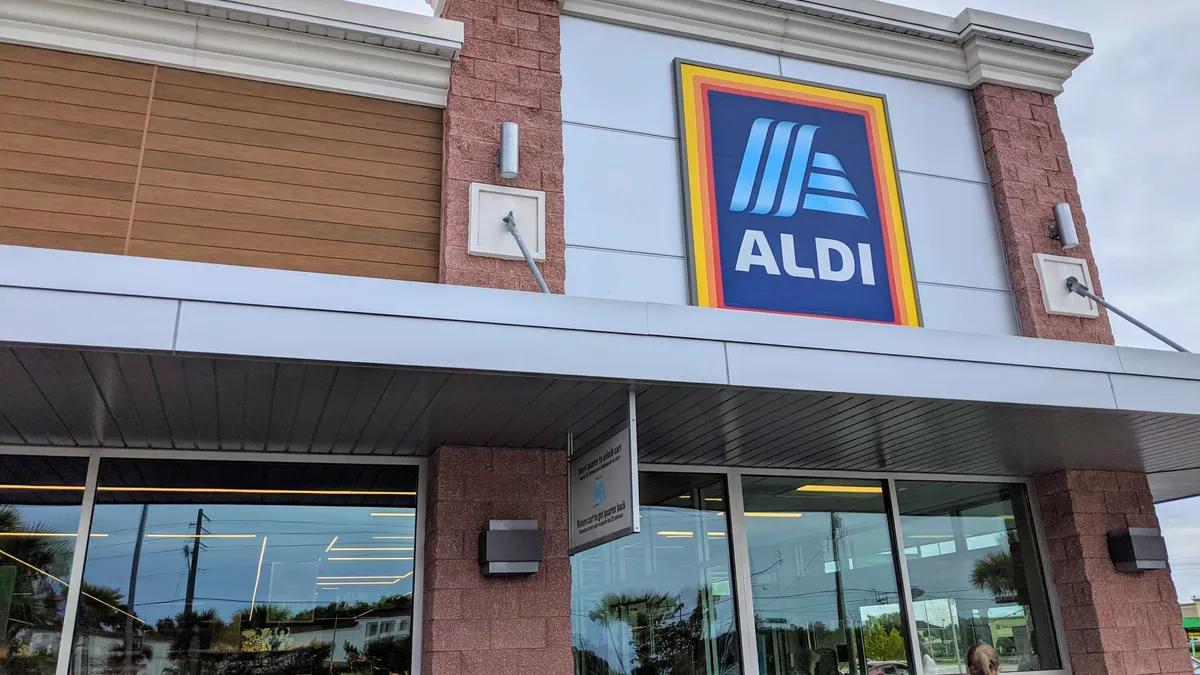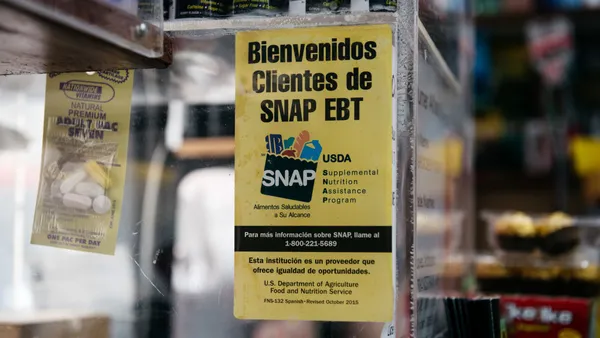Dive Brief:
- Market Basket took the top spot in a new Retailer Preference Index (RPI) report from data science firm dunnhumby that ranked 69 grocers according to their relevance with shoppers amid record-high inflation. Aldi came in second while Winco came in third.
- Discount grocers dominated the special report’s top ranks as saving money has become the top driver of where and how consumers shop, according to the firm. Still, the report found that Amazon and club retailers are seeing lackluster traffic during this period.
- “Retailers who are best positioned to save customers money are increasing visits faster and building stronger emotional connections with shoppers during inflationary times,” dunnhumby noted in its report.
Dive Insight:
Market Basket, the old-school New England grocer, took the top spot in dunnhumby’s report — a special edition of the firm’s annual RPI ranking — due to its performance across multiple price indicators as well as its reputation for being dependable.
The grocer was the only one out of the more than four dozen analyzed that ranked in the top five for both base price perception and mass promotions perception — two subcategories that shaped Market Basket’s ranking under the all-important “Save Me Money” consumer pillar. It also ranked very high in dependability, which measured grocers’ ability to keep products stocked and prices consistent.
Market Basket was also buoyed by a relatively weak set of competitors during inflationary times, dunnhumby noted. Three of the grocer’s top five competitors ranked in the report’s bottom two quartiles, while just 43% of customers report cross-shopping with Walmart, below the 55% average.
Aldi, the hard discounter that has set a furious pace for revamping its stores and building new ones in recent years, ranked high on base price perception but was just above average in dependability. The company’s foot traffic is up 11% so far this year, while its web traffic has increased 8.5%, the report noted.
Winco, Grocery Outlet and Save A Lot rounded out the top five spots. Hard discounter Lidl finished sixth in the report’s rankings, while H-E-B, which topped dunnhumby’s recent e-commerce ranking, finished 12th. Amazon did not finish in the top quartile of retailers ranked in the report despite ranking at the top of previous RPIs.
Dunnhumby’s RPI rankings incorporated two surveys of approximately 18,000 grocery shoppers, one taken last October as inflation was beginning and the other between May and June of this year. The firm modeled how shoppers’ perceptions of retailers impacted both foot traffic, as measured by Placer.ai, and web traffic, as measured by SimilarWeb, as well as retailers’ emotional connections with shoppers.
Some mainstream grocers, like Kroger, Food Lion and ShopRite, received high marks for their ability to pull various pricing levers even when they couldn’t match the lowest prices set by discount players. Seventy-six percent of Kroger shoppers agreed that the grocer has lots of “visible discounts,” while 77% said the same for ShopRite.
The report outlined numerous underperforming companies — some surprising, some not. Premium and specialty grocers like Publix and Sprouts Farmers Market, which aren’t known for carrying low prices, lag behind the market in year-over-year visit growth in 2022, dunnhumby noted. Wegmans’ foot traffic has declined 6.4% this year while e-commerce traffic has dropped 29%, according to the report.
Club retailers, which are typically known for offering value, were a puzzling underperformer in dunnhumby’s report. Retailers in the channel, including Costco, BJ’s and Sam’s Club, saw year-over-year visits decline 1.9% in the first half of this year, according to Placer.ai data. The report noted that the club model is not synced up with shoppers’ current habits.
“The current club channel difficulties reflect misalignment with shoppers’ behavior shifting toward spreading their spending out over more visits with smaller baskets,” the report announcement noted. “Additionally, lower income shoppers are more likely to shift toward smaller pack sizes during inflationary times.”
Amazon, meanwhile, “performed no better than the average grocer” in terms of value positioning during inflation. Its web traffic has dropped 6.5% so far this year, the report noted.













